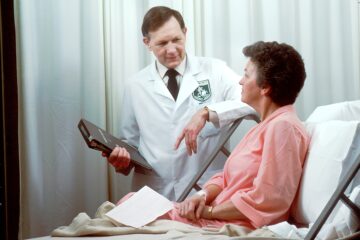First of all, inflamed wisdom tooth also known as “pericoronaritis” happens when wisdom teeth fail to erupt through the gums. As a result, they can only partially penetrate the gums, causing inflammation and infection of the soft tissue surrounding the wisdom tooth.
Gingival flaps can form if the wisdom teeth erupt only partially. In this sense, these flaps are places where food can get trapped and bacteria can grow, resulting in infection. However, in severe cases, the swelling and infection can spread to the cheeks and neck.
What is the difference between Acute and Chronic Pericoronaritis?
If your wisdom teeth are erupting, see your dentist and have them checked regularly to monitor their progress and have your infected wisdom tooth or pericoronaritis removed. However, you should be aware of the signs and symptoms so that you can seek immediate medical attention.
Acute:
- Pain at the back of the mouth gums is excruciating.
- Swollen gums at the back of the mouth
- Swallowing discomfort
- Diarrhea
- Trismus
Chronic:
- Bad breathing.
- Bad taste in your mouth
- A mild or dull pain that lasts a day or two
What factors increase my chances of developing Inflamed Wisdom Tooth?
If you are in any of these situations, you are more likely to develop pericoronaritis:
- Age around 20.
- Having wisdom teeth that have not yet fully erupted.
- Too much stress
- Being pregnant.
- Have poor dental hygiene.
How is Inflamed Wisdom Tooth diagnosed?
Your dentist will discuss your symptoms with you, examine your wisdom teeth, and look for any excess gum tissue in the area. He will likely order dental X-rays to assess the health of the roots of your teeth and rule out other potential causes of pain, such as tooth decay.
Inflamed wisdom teeth: Treatment
Your general dentist or one of the following specialists can treat pericoronaritis:
- Pediatric dentist or pedodontist
- Endodontist
- Periodontist
- Oral surgeon Prosthodontist
Treatment options for pericoronaritis include:
- Mouth rinse: If the pericoronaritis is localized and has not spread, rinsing the mouth with warm salt water may be sufficient treatment. Your dentist may rinse out food particles or bacteria or administer a mouth rinse. Thus, you should keep your gums free of any food that has become trapped.
- Painkillers, such as aspirin, acetaminophen or ibuprofen, may be taken. Your dentist may also prescribe other painkillers.
- Antibiotics: See your dentist immediately if your tooth, jaw or cheek is swollen and painful. Antibiotics may be used to treat the infection (usually penicillin, unless you are allergic).
- Removing the inflamed wisdom tooth: If a wisdom tooth still won’t come in normally, it may need to be surgically extracted. Thus, your dentist may advise you to extract both the upper and lower wisdom teeth to prevent the upper tooth from biting into the gum and infecting it further.









